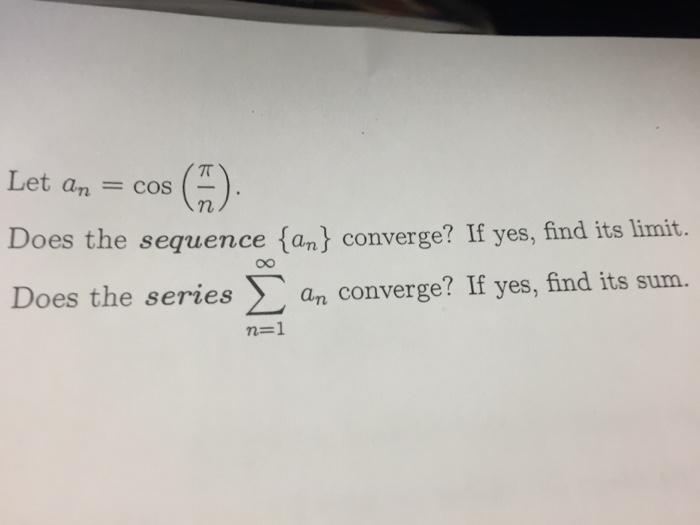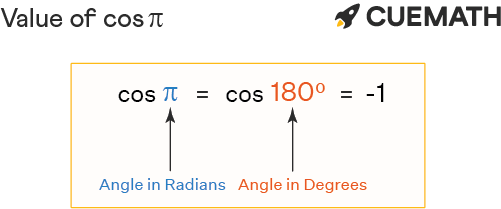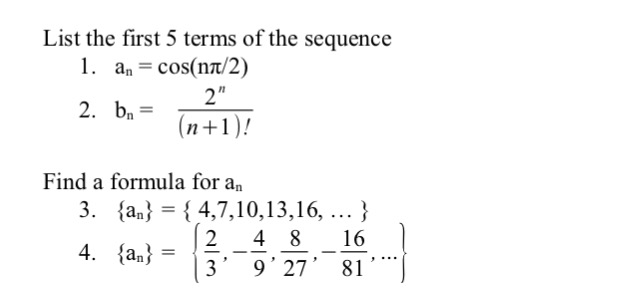
Science:Infinite Series Module/Units/Unit 1/1.1 Infinite Sequences/1.1.08 Example Relating Sequences Absolute Values - UBC Wiki
If S = cos^2 π/n + cos^2 2π/n + ....+ cos^2(n - 1)π/n, then S equals - Sarthaks eConnect | Largest Online Education Community

sequences and series - Using roots of unity to prove that $\cos\frac{\pi }{2n}\cos\frac{2\pi}{2n}\cdots\cos\frac{(n-1)\pi}{2n}=\frac{\sqrt{n}}{2^{n-1}}$ - Mathematics Stack Exchange

Range of function $ \frac{1}{n\pi}(1-\cos(n\pi))\sin(\frac{n\pi}{2})$ and determination of Fourier coefficients - Signal Processing Stack Exchange






![Solved Let y[n] = (sin (pi/8 n) cos (pi/2 n)/pi n) * sin | Chegg.com Solved Let y[n] = (sin (pi/8 n) cos (pi/2 n)/pi n) * sin | Chegg.com](https://d2vlcm61l7u1fs.cloudfront.net/media%2F315%2F31587607-4728-4ac5-93fb-1157621672f1%2Fphp2G6l9i.png)

![Solved Given cos(pi/2 n) rightarrow y[n] = x[n] +0.5x[n-1] + | Chegg.com Solved Given cos(pi/2 n) rightarrow y[n] = x[n] +0.5x[n-1] + | Chegg.com](https://d2vlcm61l7u1fs.cloudfront.net/media%2F60d%2F60d25033-1cea-4522-9966-bc5f49713f0c%2Fphp4QUTuQ.png)




}{3})^{n}&line2=\mathrm{Solution:\:}\mathrm{converges})
![Solved If x[n] = 3 + 4 cos(pi/2 n + pi/4) y[n] + y[n-1] = | Chegg.com Solved If x[n] = 3 + 4 cos(pi/2 n + pi/4) y[n] + y[n-1] = | Chegg.com](https://d2vlcm61l7u1fs.cloudfront.net/media%2F9e4%2F9e4d74a8-9dd4-4a3e-b94c-c150fef6d450%2Fphp81INR2.png)




-\cos(n%CF%80)&line2=\mathrm{Solution:\:}\cos(\frac{%CF%80n}{2})-(-1)^{n})